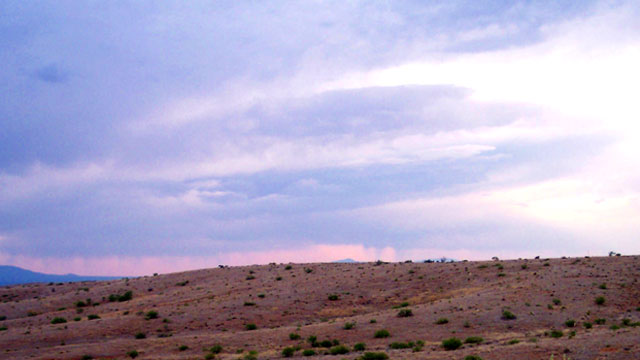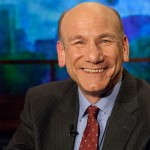Reprinted with permission from The Jewish Journal.
What did I miss?
For seven days I didn’t have salt, meat or CNN. My mornings began without “Morning Joe” or “Morning Edition;” I saw sunrise on a mountain hike, not with a clicker in my hand. My daily hour devoted to The New York Times was given over to stretching. Pilates replaced Politico. I struggled with steel dumbbells, not Fox News dumbbells. Instead of a tablet, a hammock; instead of a BlackBerry, a blackberry. The only tweets came from birds.
There’s nothing like a little media fast — I spent my holiday on a ranch in the high desert — to remind you how little it costs to be a bit out of it. Missing the gyrations in poll data doesn’t make you dumb. You’re not a bad citizen if you don’t keep up with each day’s harvest of political lying. A healthy democracy doesn’t require consuming daily servings of punditry. You don’t need to track each dispiriting plot point of the primary season to grasp that the triumph of the plutocrats is the big story of our time. You could sleep your way through the whole presidential campaign and — no matter what the outcome — wake up to find that big money still has a hammerlock on government. Sure, if you zone out from the relentless news cycle, you might miss a gory pileup or two, but it’s not as though you need to rubberneck every last car crash to realize how dangerous it is out there.
There is, of course, no virtue in being totally uninformed. Demagogues depend on ignorance, and a public that doesn’t pay attention to stuff that matters is a perfect accomplice to its own enslavement. Pick an issue — economic inequality, corporate oligopoly, climate change, health care, you name it — and there are plenty of well-funded propagandists waging war on reason. Fake facts, phony expertise and false narratives thrive on stupidity; disinformation is the mother’s milk of oppression. To the degree that journalism offers evidence and cultivates critical thinking, it demonstrates why the free press warrants being free.
But seven minutes of consuming news, especially after seven days of avoiding it, is enough to induce toxic shock.
If there’s a bigger waste of time than CNN’s panels of strategists, analysts, advocates and hacks, I can’t think of any, except maybe for the gabbers on the other networks. Even the most professional correspondents and the best-intentioned contributors are cogs in the industrial production of don’t-touch-that-dial. These shows aren’t about news; they’re about watching the news. Their business is to sell audiences to advertisers, and the laziest way to do that is to hype everything — especially this breaking news you won’t want to miss that’s coming right after the break — as urgent, fateful, must-see TV. Even if Mitt Romney or another Republican candidate in this field becomes the next president, it would be ludicrous to believe that the airtime that will have been afforded to the race by November 2012 will make us a wiser electorate. Campaign programming may be entertaining, the way a season of football or “The Biggest Loser” is fun to watch, but to claim that the wall-to-wall coverage of this melodrama is actually important to America — that the quality of its electoral outcome depends on the amount and kind of media attention that’s now being given to it — is ridiculous.
I don’t want to exempt the prestige press from this. Elite political journalism suffers from two chronic requirements. One is the need for reporters to tell the story as it unfolds in real time. Because journalists — unlike historians — don’t know the ending, they have to supply a sufficient number of dots to be retroactively connected into the narrative that ultimately emerges. The consequence of this desire not to look foolish in hindsight is an awful lot of preemptive bet-hedging and ass-covering. No good reporter wants to omit a plot line that may turn out to be significant, or to make an assertion without a prudent, and potentially face-saving, qualification. Dealing with the former means paying attention to pointless sideshows; dealing with the latter means making mush.
The other problematic requirement is the straitjacket of balance. A mainstream reporter can’t simply state that, say, Donald Trump and Herman Cain are con men gaming the political system in order to promote their brands; they have to attribute that view to someone else, and they have to dredge up a counter-assertion — these guys are great leaders! — in order to give the appearance of even-handedness. This is the brush that tars congressional Democrats and Republicans as equally obstructionist and unwilling to compromise, and that paints labor unions as the equivalent of the Koch brothers. The origin of this journalistic behavior isn’t some professional best-practices manual; it arises from 40 years of shrewd intimidation by the right, which has used the charge of “liberal bias” to force good reporters to pretend to be imbeciles.
My media detox will doubtless wear off — I’m already trying to “catch up” on stories I missed, even though I won’t end up paying a civic penalty for having a weeklong blackout in my Road to 2012 databank. I suppose I could convince myself that I have a vocational reason to be totally up to speed; yakking about the 24/7 news cycle is what I sometimes do. But that’s just an excuse. I’d much rather hold on to what dawned on me each dawn I was away: A remote mountaintop is a near-perfect vantage point from which to see the circus.


